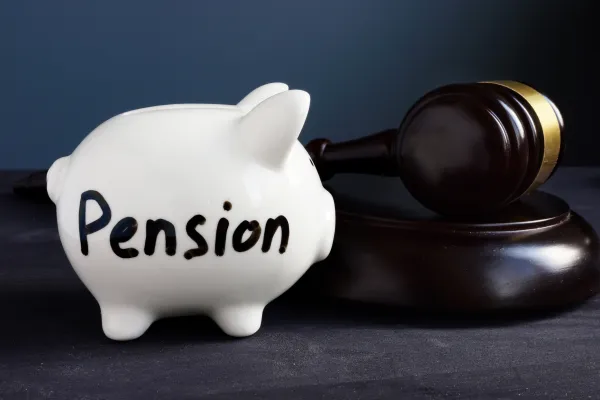Recent talk in Washington about bringing down U.S. pharmaceutical drug prices has given health care investors palpitations. This fall doctors and patients denounced companies’ steep prices for orphan drugs, specialty medications of questionable value and cancer regimens that have pushed some sufferers into bankruptcy, forcing Democratic and Republican politicians alike to take a stance on the usually unsexy topic of drug-pricing reform. Industry groups responded by distancing themselves from the bad actors and emphasizing the increases in length and quality of life that their medications promise, while quietly pressuring Congress to help increase their profit margins further.
Over the next five weeks, Institutional Investor will look at the pharmaceuticals market and the political forces that have allowed drug prices to skyrocket, share some of the most recent ideas for containing them and discuss the benefits and limitations of those solutions.
The recent uproar over pricing began in September when Turing Pharmaceuticals CEO Martin Shkreli announced that his company was raising by more than 5,000 percent the price of Daraprim, an off-patent drug used to prevent and treat opportunistic infections in HIV-infected patients and to treat a parasitic disease in pregnant women that can be deadly to unborn fetuses. Democratic presidential candidates Hillary Clinton and Bernie Sanders set forth proposals to reduce drug prices through legislation; Clinton’s September 21 tweet, calling “price gouging” in the specialty drug market “outrageous,” sent the price of BlackRock’s iShares Nasdaq Biotechnology exchange-traded fund spiraling down by 4.57 percent.
“When you look at the market response and realize this was all over a tweet from a presidential candidate — it’s ridiculous,” says Sanford C. Bernstein & Co. analyst Ronny Gal. “The United States is as pro–drug industry as they come.”
Some of the stocks hit hardest were also those whose drugs have the highest prices, such as Orkambi maker Vertex Pharmaceuticals, Harvoni maker Gilead Sciences and Shkreli’s old company, Retrophin, which is under investigation by a Senate committee for its pricing of Thiola. The orphan drug, used to prevent the formation of kidney stones, cost roughly $1.50 per pill when Retrophin acquired its rights. The company raised the price of Thiola to $30 a pill, which patients typically take multiple times a day.
Many investors, it seemed, shared Gal’s assessment that the market overreacted and rushed to take advantage of the industry’s low stock prices by grabbing shares of beaten-up drugmakers. Vertex, for example, was trading at $133 as of November 24, up 35 percent from its September 28 low and 11 percent for the year.
Other companies like Valeant Pharmaceuticals International and Biogen have been slower to recover, as the market recognizes problems with their business models that go well beyond drug pricing. Valeant shares are down nearly 40 percent for the year and more than 65 percent from its August high following an October report by Citron Research that questioned its relationship with mail order pharmacy Philidor Rx Services. (Valeant later dropped Philidor.) Biogen’s shares are off their July highs by nearly 30 percent, owing in part to steep competition for the company’s multiple sclerosis drugs from Roche Holding’s ocrelizumab, a monoclonal antibody that is showing great success in Phase III trials.
Of course, this is not the first time a U.S. presidential candidate has promised to lower drug prices: While on the campaign trail in 2007, Barack Obama said the U.S. needed to look at “how much of our health care spending is going toward the record-breaking profits earned by the drug and health care industry.” Although the Patient Protection and Affordable Care Act was a major accomplishment for Obama, he wouldn’t have been able to get it passed into law without the help of the drug industry, which the president courted with promises to keep government out of price negotiations and to deliver a 12-year patent exclusivity period for biologic medicines, instead of the five- or seven-year periods recommended by his own advisers.
Indeed, the Obama administration has consistently backed the drug industry on the international stage. Most recently, U.S. trade representative Michael Froman successfully pressured parties to the Trans-Pacific Partnership to adopt language favorable to pharmaceuticals company interests in its agreement signed October 5. The industry won big on “patent linkages,” which would prevent generic development based on off-patent intellectual property when other aspects of a drug were still on-patent, along with strong enforcement measures for signatories’ intellectual property rights. “There’s very little distance between what pharma wants and what the U.S. is demanding,” says Rohit Malpani, director for policy and analysis for the nonprofit Doctors Without Borders. In a disappointing blow to biotech, the one place the U.S. failed in negotiations was the period of biologic exclusivity, which was limited to just five years under the agreement.
Domestically, Congress is considering an industry-backed law exempting drug patents from inter partes review (IPR), despite Congressional Budget Office estimates that the exemption could cost federal health care programs $1.3 billion over a decade by delaying the release of new generic medicines. Under the current rules, third parties can ask for IPR proceedings by the U.S. Patent and Trademark Office’s Patent Trial and Appeal Board to review the validity of any patent holder’s claims.
Trade groups Biotechnology Industry Organization and Pharmaceutical Research and Manufacturers of America want this law to help defend their members in the war launched against them by hedge fund manager Kyle Bass. Through the Coalition for Affordable Drugs, of which he is founder, Bass has initiated patent challenges against pharmaceuticals companies he accuses of “evergreening” drugs with slight variations on their patents, while his Hayman Capital Management hedge fund firm simultaneously is shorting their stocks.
Congress is also considering the 21st Century Cures Act, passed by the House of Representatives on July 10 by a vote of 344–77, which calls for the development of expedited Food and Drug Administration approval of some new drugs and additional indications for existing drugs. Physicians Jerry Avorn and Aaron Kesselheim argued in a June 25 article that the act would empower the FDA to rush through drug approvals with less rigorous data than are currently required and needed. The 21st Century Cures Act “is an unnecessary incentive to the drug industry if I’ve ever seen one,” Gal says. “So what is the serious argument that Congress is going to turn around and say, ‘We’re not paying for drugs’?”
Although noting that it was significant that Republicans have been pressured to speak up about drug pricing in recent months, Ahaviah (Havi) Glaser, a Washington-based managing director in the health care practice of bipartisan government relations firm Cozen O’Connor Public Strategies Group, agrees with Gal. “I don’t think you’re going to see anything real” come out of the Daraprim scandal, legislatively, she says, because “the political will does not exist to address this problem.”
For his part, Turing CEO Shkreli has begun to change course on Daraprim, with sources saying that the company will soon cut the price of the drug by as much as 50 percent — from its new, $750 price tag — for use by hospitals. Advocacy groups like the Human Rights Campaign were not impressed. “Martin Shkreli is not pulling the wool over anyone’s eyes,” HRC president Chad Griffin said in a prepared statement. “After increasing the price of Daraprim by 5,000 percent, he now proposes to gouge critically ill people upwards of $375 for a drug that used to cost just a few dollars.” Griffin, whose organization is the U.S.’s largest lesbian, gay, bisexual and transgender civil rights group, called Turing’s actions “appalling and contemptible” and urged Congress, the Obama administration and the New York attorney general to do “what is necessary to restore this life-saving treatment to its original price.”
But even if Turing, Valeant and all of the other drug companies accused of price gouging consumers for medicines they had no part in developing were to mend their ways, it would not solve the public image or the reality that pharmaceutical prices on the whole remain too high and keep on climbing. One month before Shkreli became the “most hated man on the Internet,” the Henry J. Kaiser Family Foundation reported that 80 percent of patients who take prescription medications feel they are paying too much. Much of the blame for the problem of outsize drug prices is cast upon specialty drugmakers accused of “inventing” diseases or capitalizing on the desperation of small patient populations. Whereas these companies invest in research and development, many are asking whether society as a whole benefits from that investment. We will explore that question next week.






